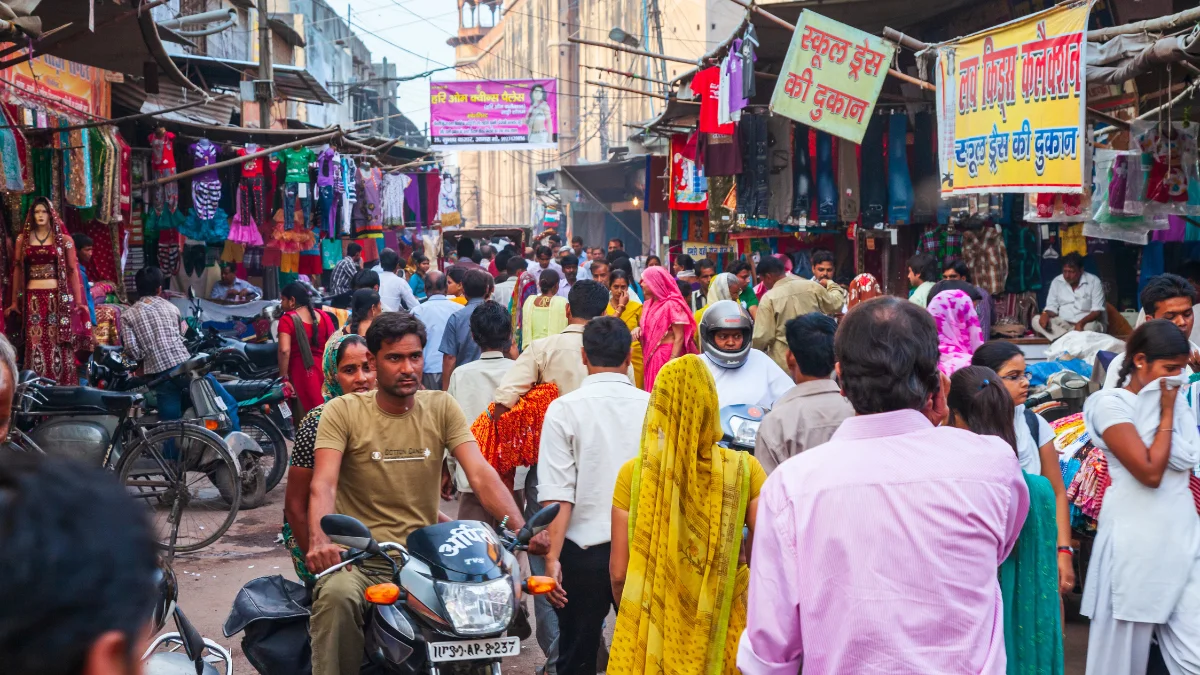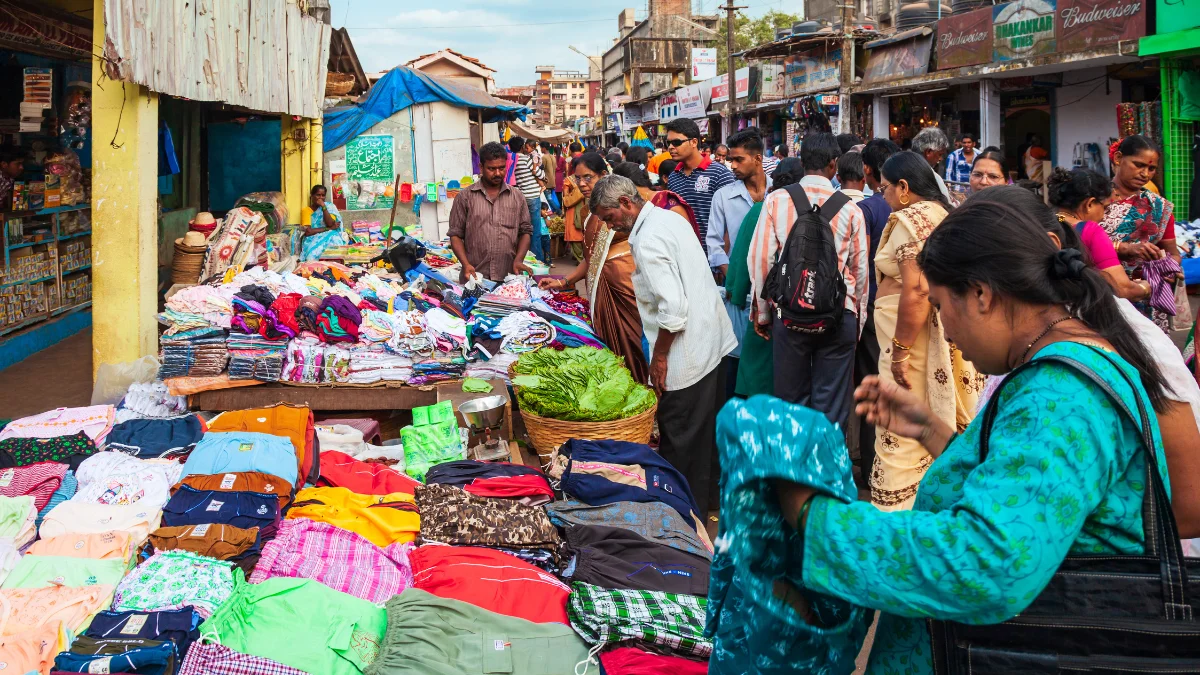It is essential to promote sustainable tourism in India. This blog offers 20 suggestions for eco-friendly travel that will protect the environment for the coming generations. By following these rules, tourists protect local communities, preserve the environment, and maintain cultural integrity. The importance of sustainable choices is highlighted as we want to generate a positive influence on India’s various landscapes while ensuring that the wonders of this destination survive for decades to come.
What is Sustainable Tourism?

Sustainable tourism is a responsible and moral travel strategy that emphasises protecting the environment, cultural heritage, and the welfare of the host community. It recognises that tourism may have detrimental consequences on ecosystems, biodiversity, and indigenous cultures; it seeks to lessen these effects by encouraging responsible behaviour. According to this concept, environmental sustainability entails actions like eco-friendly lodging, waste management, and conservation projects that minimise waste and safeguard ecosystems.
With an emphasis on respectful relationships with local people, cultural preservation is essential to sustainable tourism. Promoting respect and knowledge of regional heritage, customs, and traditions is part of this. Sustainable tourism aims to prevent cultural exploitation and disturbance, promoting sincere interactions that benefit visitors as well as locals.
In terms of economics, sustainable tourism places a strong emphasis on benefit-sharing and community engagement. It guarantees that tourism functions as a catalyst for good economic change rather than creating exploitation by promoting support for regional companies, job creation, and community development initiatives. In essence, sustainable tourism aims to strike a balance between the preservation of destinations’ ecological and cultural integrity for future generations, the growth of local communities, and the enrichment of travellers’ experiences.
The Importance of Responsible Travel
· Travelling responsibly reduces its detrimental effects on the environment by using eco-friendly habits. This entails cutting back on carbon emissions, saving water, and endorsing programmes that preserve biodiversity and natural areas.
· Respecting and protecting a destination’s cultural legacy is part of travelling responsibly. In order to encourage cultural interchange and steer clear of any actions that can denigrate or exploit indigenous cultures, tourists should educate themselves on the customs, traditions, and manners of the area.
· Sustainable travel places local communities’ welfare first. Travellers empower local people and contribute to economic development by patronising local businesses, craftsmen, and community-based tourist projects.
· The two most important components of responsible travel are minimising waste and disposing of garbage properly. Reduced usage of single-use plastics, recycling, and involvement in local waste management initiatives are ways that travellers might try to leave as little of an environmental effect as possible.
· Conscientious tourists abstain from endorsing actions that endanger or facilitate the illicit trafficking of wildlife. They pick ethical animal encounters and back conservation initiatives that save threatened species and their natural environments.
· Ethical travel practices guarantee that local people share fairly in the financial gains from tourism. This involves investing in local infrastructure and paying fair salaries for occupations associated with tourism.
· As people become more conscious of the effects of climate change, they choose more environmentally friendly travel alternatives, support eco-friendly lodging, and offset their carbon footprints.
· Travelling responsibly offers chances for learning and cultural exchange. It promotes empathy and a feeling of global citizenship by encouraging visitors to learn more about the places they visit.
· By adhering to conservation principles, upholding the law, and helping to maintain and restore these significant landmarks, responsible travellers contribute to the protection and preservation of historical and cultural heritage places.
· By travelling responsibly, travellers may promote sustainable tourism practices. Through their experiences and advocacy for moral decisions, they support a larger movement that pushes the travel industry to do more environmentally friendly and socially conscious actions.
20 Tips to Practice Sustainable Tourism in India
1. Respect the Local Culture

In India, maintaining indigenous culture is essential to sustainable tourism. Make sure you are aware of the local norms before you go, wear modest clothing, get permission to take pictures, and respect any restrictions imposed by the sacred site. A basic knowledge of local greetings promotes constructive interactions. Cultural sensitivity is demonstrated by avoiding disruptive behaviour, respecting elders, and keeping one’s personal space. Participating in community workshops, attending local art events, and supporting local artists all help to preserve cultural traditions. Being accepting of different customs and religious views enriches the travel experience and encourages ethical and sustainable travel to India.
2. Minimise Your Carbon Footprint for Sustainable Tourism
To minimise your carbon footprint, embrace eco-friendly activities in daily life. Select eco-friendly modes of transportation such as electric cars, cycling, and public transportation. When not in use, turn off lights and electronics to conserve energy. In addition to considering energy-efficient equipment, support renewable energy sources. Use resources wisely to cut down on waste and water use. Reduce your contribution to landfills by recycling and composting. Contribute to certified carbon offset programmes to offset your remaining carbon emissions. Adopt a plant-based diet since raising cattle increases carbon emissions significantly. Encourage others to adopt ecologically friendly behaviours and spread awareness. By making deliberate choices, people may reduce their collective carbon footprint and contribute to the development of a more sustainable and ecologically friendly future.
3. Conserve Water

In India, water conservation is a prerequisite for sustainable tourism. By selecting water-efficient lodging, reporting leaks right once, and incorporating responsible water use into everyday routines, tourists may reduce their effect. Local conservation measures are aided by funding environmentally friendly projects like rainwater collection and community-based water projects. Tourists are essential to the preservation of this valuable resource because they follow local water rules and practice water-saving behaviours, especially in areas where water is scarce. The tourist sector in India is becoming more environmentally conscious and responsible as a result of collective efforts towards sustainable water management.
4. Reduce Plastic Usage

In India, sustainable tourism necessitates a determined effort to cut back on plastic consumption. By bringing reusable water bottles on their travels, tourists may significantly reduce their dependency on single-use plastic. Reducing waste may be achieved by rejecting products like plastic bags, straws, and silverware and choosing eco-friendly substitutes. Reusable shopping bags reduce plastic waste even more when they are used for everyday purchases and souvenirs. Encouraging lodging and commercial establishments that put a high priority on plastic-free activities promotes ethical behaviour. A sustainable culture is also promoted by raising awareness of the harm that plastic waste does to the environment. Travellers may contribute significantly to protecting India’s natural beauty and advancing a more sustainable tourism sector by embracing these actions as a group.
5. Eat Locally

In India, embracing regional food is essential to sustainable tourism. Choosing to eat locally enhances travel experiences, boosts local businesses, and lessens the carbon footprint caused by the transportation of food. Select eateries and food carts that use locally sourced foods, supporting sustainability and maintaining customs in cooking. This method promotes the use of seasonal products, strengthens ties to the community, and frequently results in a more genuine and ecologically conscious eating experience. Through valuing and embracing regional specialities, visitors support the health of local communities and the destination’s overall sustainability.
6. Shop Locally

Shopping locally is pivotal for sustainable tourism in India. By purchasing goods from local markets, artisans, and cooperatives, travellers support the regional economy and preserve cultural heritage. Locally sourced products often have a lower carbon footprint, reducing environmental impact. Choose handmade crafts, textiles, and souvenirs from local artisans, promoting fair trade practices and community development. This not only fosters a more authentic and meaningful travel experience but also ensures that the economic benefits of tourism directly contribute to the well-being of local communities. Shopping locally in India becomes a sustainable choice that helps conserve traditional craftsmanship and promotes responsible tourism.
7. Choose Local Accommodations

Choosing lodgings that are owned and operated locally is an important part of sustainable tourism in India. Through their choice of locally owned and run hotels, guesthouses, or homestays, travellers make a direct economic contribution to the community. By ensuring that a sizeable amount of tourism-related income stays in the area, this strategy supports local economies and promotes a feeling of cultural authenticity. Locally owned businesses frequently emphasise sustainable practices, offering guests a hotel experience that is more environmentally and socially conscious. Staying in such accommodations enhances the whole travel experience by promoting ethical and sustainable tourism in India and forging closer ties with the local community.
8. Use Eco-Friendly Transport

Encourage environmentally efficient modes of transport to advance sustainable tourism in India. Think about renting environmentally friendly cars, riding bicycles, or utilising electric rickshaws. These decisions lessen the impact of travel on the environment by reducing carbon emissions. Bicycles and electric rickshaws have a reduced carbon footprint, making it possible to explore local attractions in a more environmentally conscientious manner. Fuel-efficient cars are a common feature of eco-friendly car rentals, which are consistent with responsible travel methods. Travellers may actively promote a greener and more sustainable way of seeing India’s rich landscapes and cultural treasures by selecting these means of transportation deliberately.
9. Get Educated
Make sustainable tourism a priority by learning about the location. Before you leave on your journey, please educate yourself about its environment, history, and culture. Making appropriate travel decisions is facilitated by knowledge of regional traditions and environmental issues. With this understanding, you may participate in meaningful relationships, observe conservation principles, and show respect for cultural subtleties. Travellers with knowledge have a beneficial influence on the places they visit by helping to preserve the natural and cultural heritage. You may improve your entire vacation experience and actively promote sustainable tourism practices by fully integrating yourself into the backdrop of the place you have selected.
10. Practice Proper Waste Disposal

In India, adopting appropriate trash disposal procedures is essential for sustainable tourism. It is recommended that travellers pack reusable trash bags in order to gather and dispose of their garbage correctly. Supporting regional recycling initiatives is made easier by separating recyclables from non-recyclables and utilising appropriate containers. Refusing to litter protects the environment and promotes the destinations’ visual integrity in natural and cultural areas. Furthermore, following the tenet of “pack out what you pack in” guarantees that minimum damage is done to delicate ecosystems. Travellers are essential to the preservation of India’s natural beauty and the sustainability of its varied landscapes because they manage garbage responsibly.
11. Engage in Responsible Trekking

Trekking responsibly is essential to India’s sustainable tourist industry. To reduce your influence on the environment, stick to approved paths and stay off the beaten route. Respect the surrounding flora and animals, pack out any rubbish, and adhere to the “Leave No Trace” ideals. Choose eco-friendly lodging and provide your support to tour companies that put conservation first. Reduce noise levels to protect the peace of the natural environment. Acquire the required licences to guarantee adherence to regional laws and honour the cultural importance of hiking routes. Trekkers who practise ethical trekking play a vital role in maintaining India’s varied ecosystems and promoting a constructive tourism-environment link.
12. Encourage Sustainable Tourism in India by Practicing It
Increasing public understanding of responsible travel habits is a key component of promoting sustainable tourism in India. Publish details about local projects, environmentally friendly lodging options, and conservation activities on social media, blogs, or travel discussion boards. Emphasise the necessity of decreasing plastic consumption, preserving water, and supporting local communities. Inform other tourists about the value of observing cultural customs and leaving as little of an environmental impact as possible. You may positively influence India’s ecosystems and communities by promoting a shared knowledge of sustainable tourism. Everyone’s travel experience will be more sustainable and fulfilling when people are empowered to make wise decisions.
13. Conserve Energy
In India, energy conservation is essential to sustainable travel. Select lodgings that emphasised energy-saving measures, such as solar energy and LED lighting. To save energy, turn off the lights, air conditioning, and devices when not in use. Encourage eco-friendly lodging establishments to make investments in renewable energy sources. Instead of depending entirely on artificial cooling, think about using natural ventilation. When feasible, use energy-efficient modes of transportation and go on your bike or on foot to explore. Travellers may help reduce their carbon impact, encourage responsible tourism, and save India’s natural beauty and cultural legacy for future generations by adopting these habits.
14. Use Public Transport

In India, using public transit is a sustainable way to travel. Adopt metro, bus, and rail systems to lessen your influence on the environment and traffic. Using public transport not only reduces carbon emissions but also provides an opportunity to interact with the community. Through the collective transportation of more people, it improves energy efficiency. When travelling between cities, take public transportation to explore the various landscapes and cultures effectively. This environmentally friendly strategy not only reduces its environmental impact but also helps to build a strong public transport system, which encourages responsible travel and has a favourable effect on India’s sustainable tourist industry.
15. Engage in Responsible Wildlife Tourism
Sustainable tourism in India depends on involvement in ethical wildlife tourism. Select national parks and ethical wildlife sanctuaries that put animal care and conservation first. Steer clear of sponsoring captive shows or elephant rides, for example, as these practices exploit or injure animals. Employ local guides who are dedicated to sustainable techniques so that there is as little disruption to wildlife habitats as possible. Follow established routes and keep a respectful distance from wildlife. Learn about the value of biodiversity and the difficulties that regional ecosystems confront. Travellers may actively help the preservation of India’s rich fauna and ecosystems while encouraging ethical and sustainable practices by participating in responsible wildlife tourism.
16. Practice Cultural Exchange
Enhance India’s sustainable tourism experiences by engaging in cultural exchange. Take part in homestays, workshops, and customary activities to interact with the local populations. Recognise and honour regional traditions to promote understanding amongst people. In order to establish deep friendships, share your cultural viewpoints. By buying handcrafted goods from nearby artisans, you may help sustain local livelihoods. To fully immerse oneself in the rich cultural tapestry, attend festivals and events. Acquire a few fundamental words in the native tongue to aid with communicating. Travellers who embrace cultural interaction not only get a better understanding of India’s rich history but also encourage respect for one another, which benefits both them and the people they come across.
17. Support Local Arts and Crafts

In India, promoting regional handicrafts and the arts is crucial for sustainable tourism. By purchasing goods and trinkets manufactured locally, you can support local artists directly and help preserve their trade. Investigate neighbourhood markets and workshops and talk to craftspeople to learn about their methods of creation. Make fair trade policies a top priority to guarantee competent artisans a just wage. Travellers support cultural preservation and community economic viability by buying handcrafted goods. In addition to offering heartfelt keepsakes, these deeds actively support the preservation of India’s rich creative legacy, improving the country’s cultural environment and the livelihoods of regional craftspeople.
18. Participate in Community-Based Tourism
Organise community-based tourism in India to promote environmentally friendly travel. Select activities that are beneficial to the community and involve them, providing real insights into their way of life. Choose community-led tours or homestays, which will directly support locals economically. Take part in events, festivals, or seminars that your community has organised. To create a more meaningful travel experience, respect customs, engage in dialogue, and form relationships. Travellers play a vital role in the sustainable development of India’s various destinations, cultural preservation, and community empowerment by actively engaging and supporting local communities. This strategy guarantees that tourism has a beneficial effect on the lives and general well-being of the people encountered while travelling.
19. Learn Local Phrases
Learn some native words to enhance your trip to India. Gaining proficiency in a few fundamental phrases in the native tongue promotes constructive communication and cross-cultural exchange. Sayings like “hi” and “thank you” improve communication while demonstrating consideration for the host culture. The work is appreciated by the locals, who foster a friendly environment. To acquaint yourself before your trip, use language learning applications or enrol in programmes. This little yet effective action not only makes communication easier but also shows that the person genuinely wants to engage with the community. Travellers may promote mutual understanding and appreciation by learning local terms, which add to a more immersive and respectful cultural experience.
20. Choose Eco-Friendly Accommodation

Choose eco-friendly lodging to support India’s sustainable tourism industry. Select lodging options such as guesthouses, hotels, or resorts that emphasise environmental protection. Environmentally conscious lodgings usually employ renewable resources, reduce waste, and conserve electricity and water. Encourage businesses to implement programmes like garbage recycling, solar energy, and rainwater harvesting. Take into account elements like water-saving equipment, energy-efficient lighting, and a dedication to community participation in the local area. Travellers may actively lessen their influence on the environment, promote responsible tourism, and protect India’s natural beauty for future generations by selecting eco-friendly lodging.
Conclusion
Let’s acknowledge the critical role that every tourist plays in influencing the course of tourism. We all help to leave a positive legacy for India and the globe by upholding sustainable practices, honouring local customs, and protecting the environment. Let’s travel in a way that will benefit future generations by preserving the splendour and diversity of our places.


